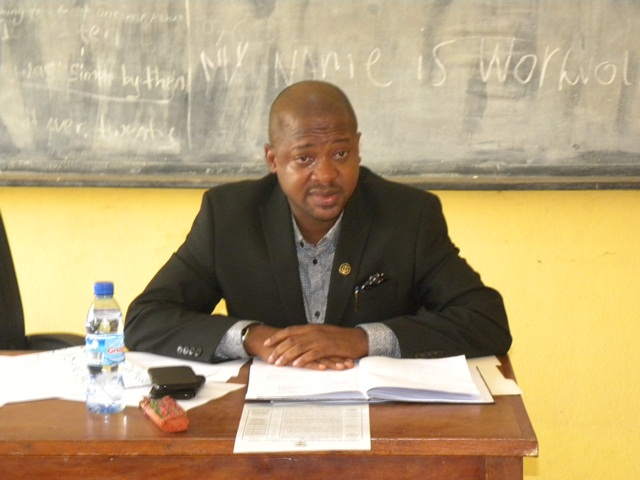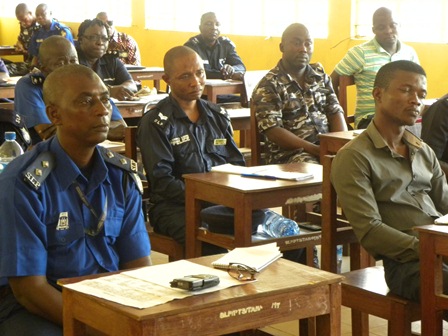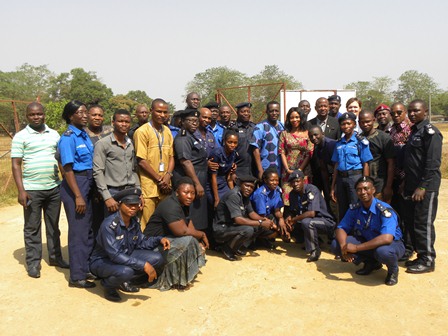

The Ombudsman of the Republic of Sierra Leone Leon Jenkins-Johnston Esq. and team on Friday 8th February 2019 conducted a mini lecture for the personnel of the Complaint Discipline and Internal Investigations Department (CDIID) at the Sierra Leone Police Training School at Hastings in the Koya Rural District. The lecture is part of the ongoing sensitization to create awareness on the mandate and functions of the office of the Ombudsman facilitated by.
Welcoming the Ombudsman and Team, Liz Macleod, ISAT trainer, thanked the Ombudsman and team for honoring her invitation to talk to personnel of the CDIID on the mandate and functions of the Office of the Ombudsman. She appealed to the officers to take the lecture in good faith, so that they can be guided in performing their task.
Making his presentation, the Ombudsman Leon Jenkins-Johnston Esq. said that the relationship between the Sierra Leone Police Force and the Office of the Ombudsman is a statutory relationship and it is spelt out in subsection 2 of section 146 of the constitution of Sierra Leone Act No. 6 of 1991. He further explained that the functions of the Office of the Ombudsman is laid out in section 7 of the Ombudsman Act of 1997. He noted that Sierra Leone Police Force, having being created by statute is under the watch of the Office. He stated that in the preliminary of the Ombudsman’s Act the Sierra Leone Police Force falls under “Prescribed Authority” which states that: In this Act, unless the context otherwise requires;-
“Prescribed Authority” means bodies of persons referred to in the preamble, the Public Service Commission, the Armed Forces, the Police Force, the Prison Service or any other institution for which a minister in answerable to Parliament.
He further said that the investigations carried out by the office of the Ombudsman are in two folds: either by complaint of from any other source. He outlined the definition of injustice as prescribed in the Act which is define as:
“Injustice” includes hardship, detriment or grievance occasioned by any inequitable treatment, whether legally or otherwise;
He further define Maladministration as prescribed in the Act as:
- bias;
- unfair discrimination or failure to explain grounds of a decision which appears discriminatory;
- harshness or general high-handedness;
- misleading a member of the public as to high right or deliberately withholding from him material information concerning the rights of such person;
- using powers for a wrong purpose;
- failing to consider relevant material or taking irrelevant material into account for any decision;
- losing or failing to reply to correspondence with a member of the public;
- delaying unreasonably before making a tax refund or presenting a tax demand or dealing with any application for a grant or license.
For which the latter is not applicable to the institution. He revealed that under section 10 the Ombudsman has powers to investigate any complaints relating to a prescribed authority. He noted that section 10(1) gives powers to the Ombudsman’s office to carry out investigations into complaint received from the public.
He furthered explained that section 19 of the Ombudsman’s Act stated the independence of the Ombudsman which states that:
Except as otherwise provided for in this Act, in the exercise of his function under this Act, the Ombudsman shall not be subjected to the control or direction of any other person or authority.


